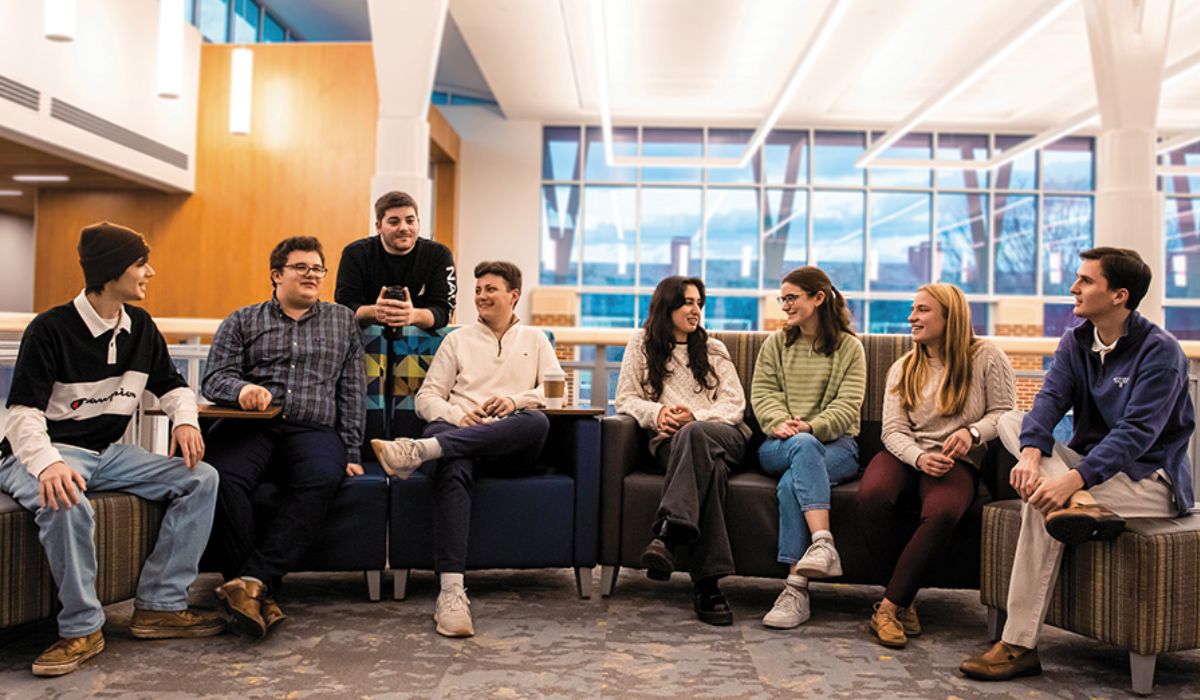
After the Israel-Hamas war began in October 2023,college campuses across America became epicenters of protest and conversation, including Gettysburg College.
Moments of national and global significance, like this war and the 2024 presidential election, put the missions of these institutions to the test. At Gettysburg, our mission is to “engage the complex questions of our time through effective leadership and socially responsible citizenship,” which, in practice, involves civil discourse.
Sparking the conversation
Freedom of expression has remained central to Gettysburg College’s mission since its founding. Last fall, President Bob Iuliano joined college presidents nationwide in committing to advancing civil discourse, announcing a campus-wide initiative, The Unfinished Work: Conversations for Change. This initiative encourages conversations across differences, preparing graduates to deploy this skill.
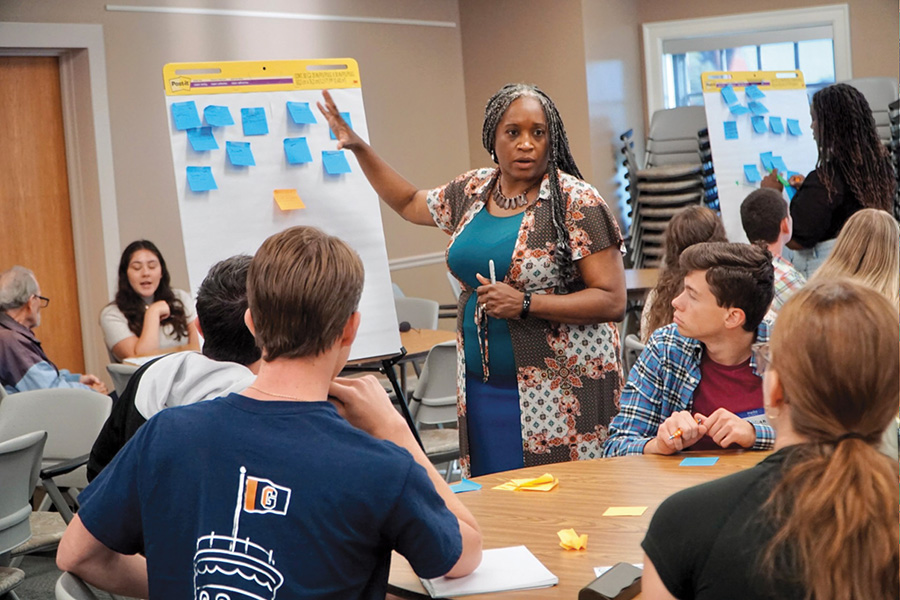
“Students are learning that you should talk across differences, but we’re not necessarily born with that skill,” said Eisenhower Institute Executive Director Tracie Potts. “I often think of college as an incubator. These are the last four years before we launch you into the world—and this is a skill and mindset you will need.”
Gettysburgians engage in such conversations in the classroom. Public Policy Chair Anne S. Douds, alongside Research, Instruction, and Online Learning Librarian Kevin Moore, teaches a civil discourse series in which students analyze bias in scholarship or media.
“This series is not telling them anything about what they should think; it’s teaching them to think critically, standing in the shoes of multiple stakeholders,” Douds said. “If you cannot understand alternative perspectives, then how can you craft meaningful responses to them?”
Carl DeMarco ’25, co-president of College Republicans, sees this open-mindedness in the faculty. He’s witnessed professors encourage students to share freely and interrogate both their own and others’ ideas.
“I’ve seen strong conversations, but it’s never been, ‘You’re just wrong.’ It’s ‘Why?’” DeMarco said. “There’s a lot of questioning and trying to get people to not only understand their own opinions but the other people in the classroom too.”
Understanding others also involves talking openly about our backgrounds and perspectives—an approach Political Science Prof. Douglas Page takes.
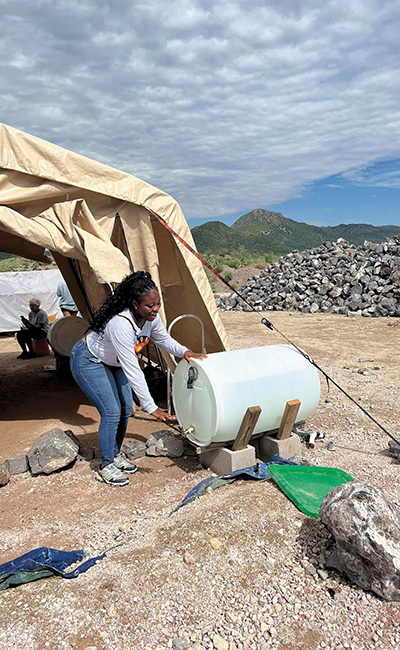
“What I do in the classroom is communicate who I am and where I come from,” said Page, a political campaigner and the College Democrats’ faculty advisor. “We may not agree, but I feel like students have been comfortable saying their part. It makes it more personal, and hopefully, that can inspire trust.”
Gettysburgians also learn how to grow this skill through experiential learning opportunities. Last summer, Sema Meckie Williams ’27 gleaned perspective while volunteering for Casa Alitas, a homeless shelter for migrant families seeking asylum in Arizona.
“Gettysburg is giving us a good opportunity to participate in activities that help you learn about social issues and current events,” said Williams. “It is important to have thoughtful conversations because we are trying to make the world diverse and for everyone to feel included.”
In the classroom and beyond, Gettysburgians engage critically with the factors that shape our viewpoints, including the media. Spanish Chair Alvaro Kaempfer P’22, P’25, who taught a class about media coverage in the 2024 presidential election last fall, encourages students to reflect on how they consume media.
“Classrooms are spaces for open discussion,” Kaempfer said. “In an oversaturated media environment, people might not always have the ability and patience to listen and articulate an informed reaction. Part of my goal is to create that conversation.”
Growing our understanding
Public forums and open discussions are prevalent in many aspects of life, from social media comments to the dinner table. Civil discourse emphasizes mutual respect.
“It also doesn’t make our campus beautiful and diverse if everyone agrees on everything,” said Associate Dean for Inclusion and Belonging Cristina Garcia. “You should be engaging in the conversation as long as it’s done in a civil, respectful, appropriate way.”
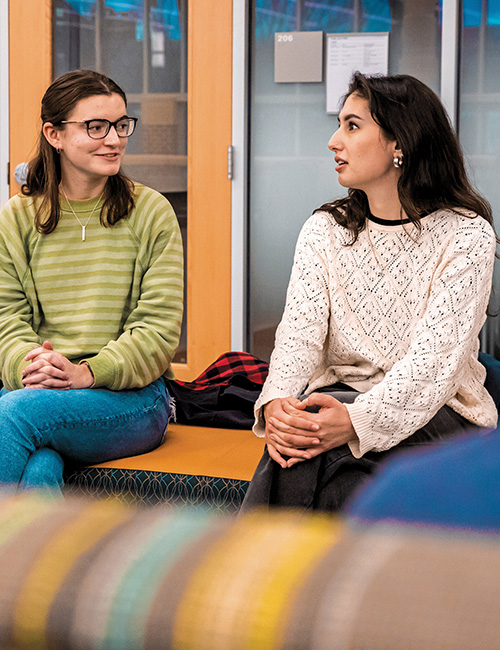
Alisha LeVine ’25, president of Gettysburg College Democrats, gathered students to discuss recent political events before the 2024 presidential election. While not all students agreed, they interacted civilly.
“We still saw respect,” LeVine said. “It’s important that students can trust their peers and know that they’re their friends, and we come from a lot of different places and opinions. Oftentimes, our end goals can be similar.”
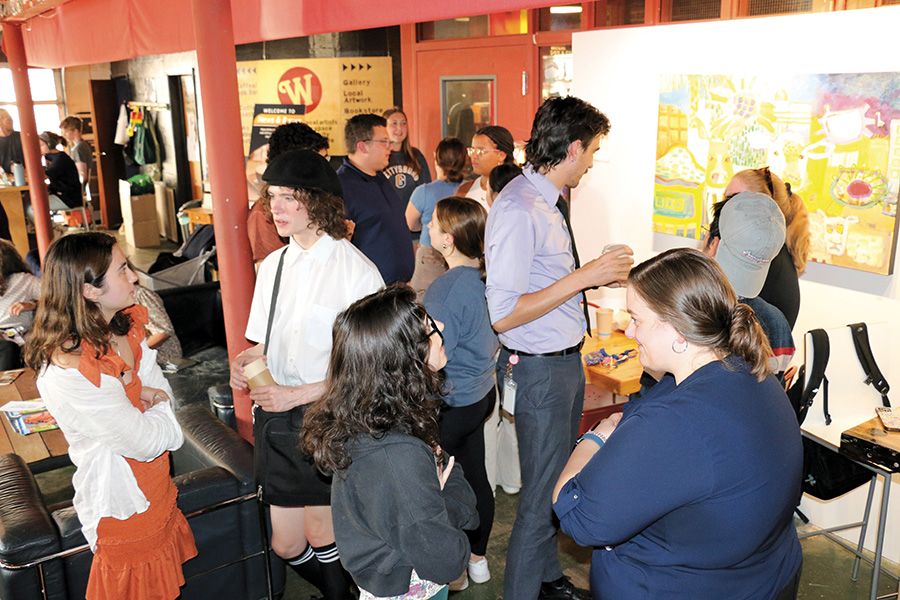
On the eve of Election Day, Gettysburg College Democrats and Gettysburg College Republicans then came together to issue a joint statement that pledged to place country over party, regardless of the outcome. They also co-sponsored an election watch party as part of Conversations for Change, collaborating with the Center for Religious and Spiritual Life, the Eisenhower Institute, and the Public Policy Department.
“We are so proud to have been part of this unifying effort!” stated the Gettysburg College Republicans on Instagram.
As engaged citizens, that unity remains central to the Gettysburg College community, on and off campus.
Garcia and her colleagues continue to train students that civil discourse is about listening to understand—not listening to respond—which fosters more productive conversations. Garcia encourages students to think critically by asking, “So what, and now what? What does this mean to my understanding of things, and what do I do next with this understanding?”
“When we learn how to have those types of conversations, we’re learning more about ourselves,” Garcia said. “We’re fine tuning our values and beliefs and how we’re able to communicate
those. Hopefully through all of that, we’re allowing others to
do the same.”
Eric Lee ’15, a New York Times photography fellow covering politics in Washington, D.C., documents various perspectives in his work. He hopes his efforts will expand readers’ understandings of the White House, Congress, and life in the nation’s capital.
“As a photojournalist, I can give context by documenting everyone on all ends of the political spectrum,” Lee said.
“If my photos matter to one person, then I’ve done my job.
Even if everyone doesn’t agree 100%, they can walk away with a better understanding of each other.”
Laura Strickler ’95, an NBC News senior investigative reporter, similarly bears witness to people’s stories in her career, like those in communities affected by the fentanyl crisis or Hurricane Helene. She’s observed that Americans have more in common than they might think.
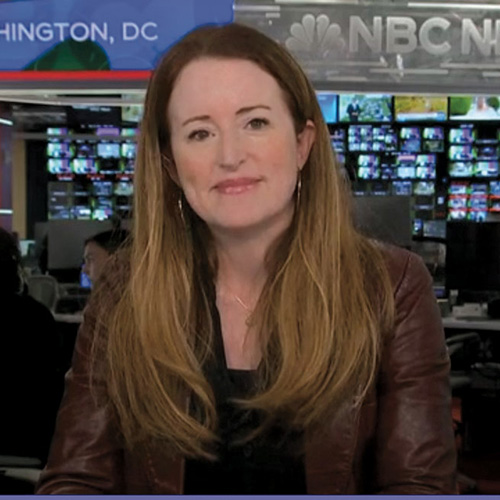
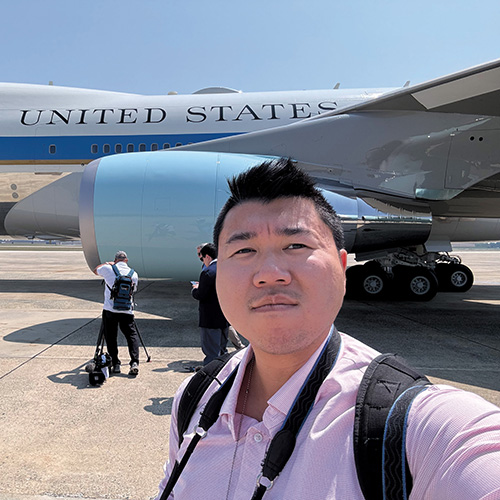
“When you look online, it seems like the complete opposite—there’s so much anger and division between Americans, and I just don’t buy it. I find much more often that there’s common ground between Americans on big issues,” Strickler said. “Hopefully, the more conversations we have with one another, the more we’ll figure that out for ourselves.”
Whether in the classroom or our homes, the key to civil discourse is to engage in a way that broadens our understanding of others and the world.
“The focus on ‘civil’ is really important,” Potts said. “We have to start looking at people as humans before we start looking at them as opinions.”
by Phoebe Doscher '22
Posted: 02/18/25